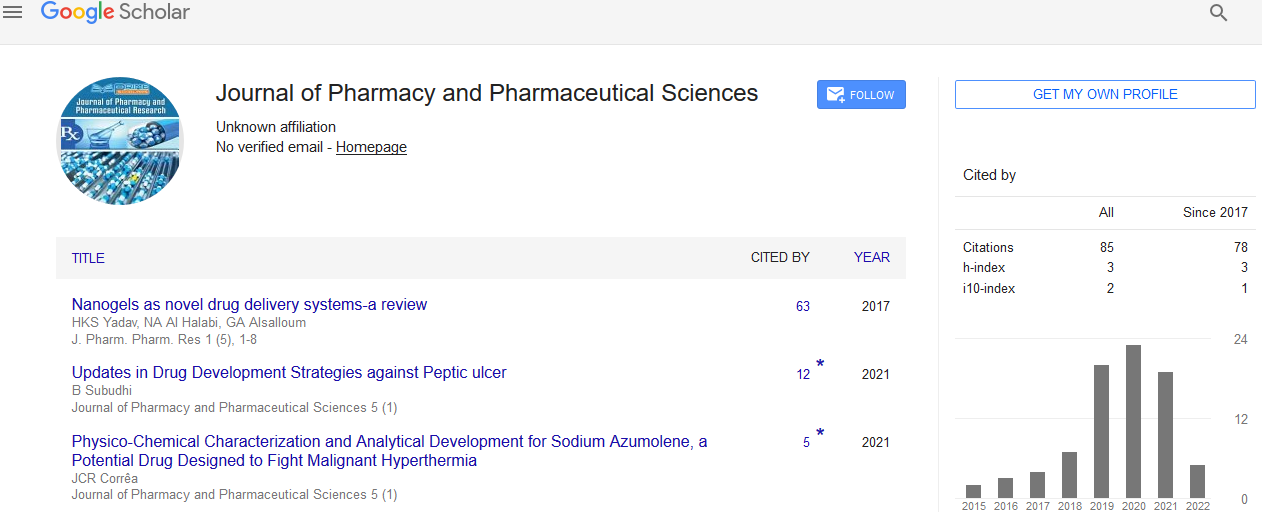Perspective - (2024) Volume 8, Issue 1
Navigating the Controversy: Codeine Cough Syrups
Melisa John*
Department of Medicine, Alexandria University, Egypt
*Correspondence:
Melisa John,
Department of Medicine, Alexandria University,
Egypt,
Email:
Received: 28-Feb-2024, Manuscript No. PIPR-24-19907;
Editor assigned: 01-Mar-2024, Pre QC No. PIPR-24-19907 (PQ);
Reviewed: 15-Mar-2024, QC No. PIPR-24-19907;
Revised: 20-Mar-2024, Manuscript No. PIPR-24-19907 (R);
Published:
27-Mar-2024, DOI: 10.21767/ipipr.8.01.005
Introduction
Codeine cough syrups have long occupied a significant
place in the arsenal of medications used to manage cough
and associated symptoms. However, their use has been
marred by controversy due to concerns surrounding misuse,
addiction, and adverse effects. This article delves into the
complexities surrounding codeine cough syrups, exploring
their pharmacology, therapeutic uses, risks, and the regulatory
landscape shaping their availability and prescription. Codeine
is an opioid analgesic and antitussive medication derived
from the opium poppy plant. When used in cough syrups, it
acts centrally to suppress the cough reflex, offering relief
from dry, irritating coughs. Combined with other ingredients
such as promethazine or guaifenesin, codeine cough syrups
are formulated to alleviate cough symptoms while addressing
accompanying issues such as congestion and throat irritation.
Description
Codeine cough syrups are primarily indicated for the temporary
relief of cough caused by conditions such as the common cold,
influenza, or respiratory tract infections. They are typically
reserved for cases where non-opioid cough suppressants have
proven ineffective or when cough severity significantly impacts
quality of life. When used as directed and for short durations,
codeine cough syrups can provide effective symptom relief and
improve patient comfort. Despite their therapeutic benefits,
codeine cough syrups carry inherent risks that have prompted
regulatory scrutiny and public health concerns: Codeine is an
opioid with potential for abuse and dependence, particularly
when used chronically or in higher-than-recommended doses.
Prolonged use of codeine cough syrups can lead to physical
dependence, tolerance, and addiction, posing significant risks to
individuals susceptible to substance misuse. Like other opioids,
codeine can depress the central nervous system and suppress
respiratory function, especially in high doses or in individuals
with preexisting respiratory conditions. Respiratory depression
is a serious concern, particularly in pediatric patients and
those with compromised lung function. Common side effects
associated with codeine cough syrups include drowsiness,
dizziness, constipation, and nausea. Additionally, allergic
reactions and hypersensitivity to codeine or other ingredients
in the syrup may occur, necessitating prompt medical attention.
In response to growing concerns regarding codeine misuse and
associated risks, regulatory agencies in various countries have
implemented measures to restrict access to codeine-containing
medications. These measures include rescheduling codeine
products to require a prescription, imposing stricter labeling
requirements, and implementing prescription monitoring
programs to track dispensing patterns and identify potential
misuse. Healthcare providers play a crucial role in ensuring the
safe and appropriate use of codeine cough syrups. Prescribing
guidelines emphasize the importance of conducting a thorough
medical assessment, considering alternative treatments, and
educating patients about the risks and benefits of codeine
therapy. In cases where codeine is deemed necessary,
healthcare providers should prescribe the lowest effective dose
for the shortest duration possible, particularly in vulnerable
populations such as children, the elderly, and individuals with a
history of substance abuse.
Conclusion
Codeine cough syrups occupy a contentious position in the
landscape of cough management, balancing therapeutic
efficacy with potential risks of misuse, dependence, and
adverse effects. While these medications can provide effective
relief for certain individuals, their use must be approached with
caution, guided by evidence-based prescribing practices and
regulatory oversight. By prioritizing patient safety, exploring
alternative treatments, and advancing scientific research,
healthcare providers and regulatory authorities can navigate
the complexities surrounding codeine cough syrups and ensure
optimal care for individuals seeking relief from cough and
related symptoms.
Citation: John M (2024) Navigating the Controversy: Codeine Cough Syrups. J Pharm Pharm Res. 8:005.
Copyright: © 2024 John M. This is an open-access article distributed under the terms of the Creative Commons Attribution License, which permits unrestricted use, distribution, and reproduction in any medium, provided the original author and source are credited.

